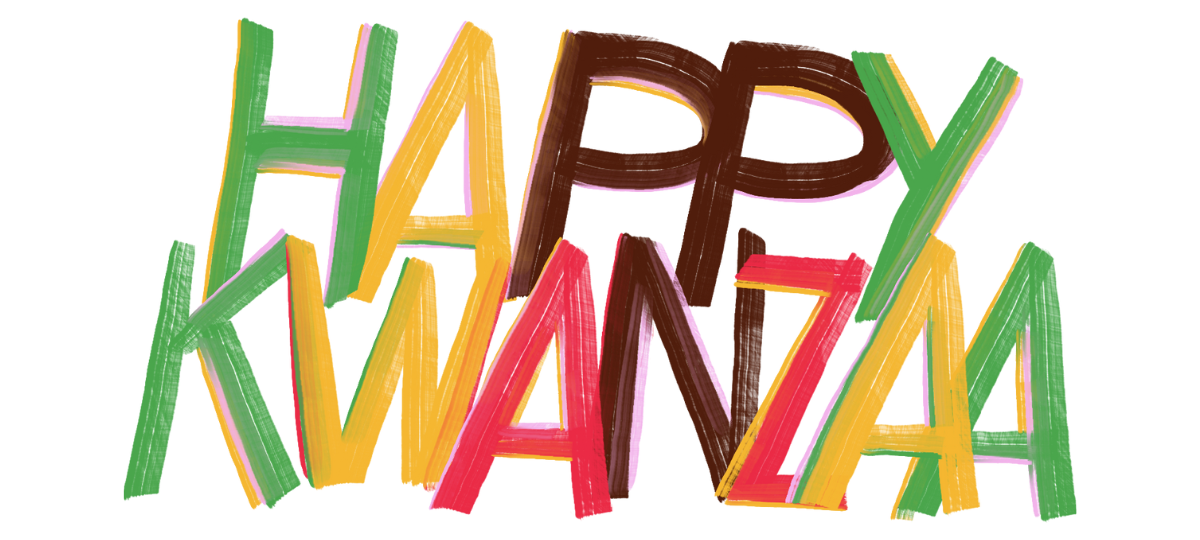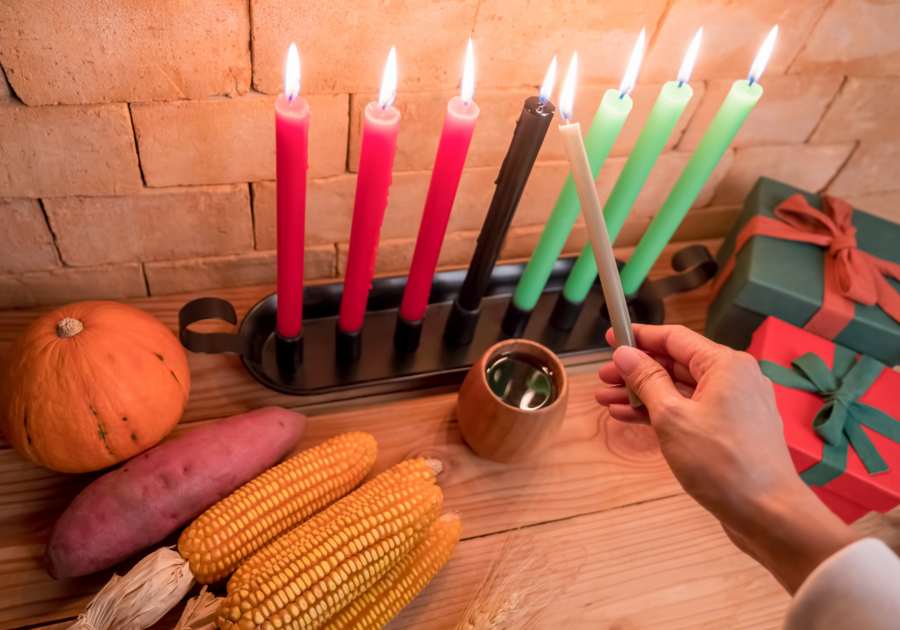Kwanzaa is family-oriented so it's easy to get children involved. Many of the activities surrounding the annual event are geared toward children of all ages and most certainly adaptable for little ones.
The main colors of Kwanzaa are green, black, and red. Incorporate these hues into your decorating and crafts, from placemats to collages, and other decor items. Since Kwanzaa has a big focus on creativity, you can encourage your kids to make handmade cards and signs to give to relatives and friends. They will enjoy learning and diving into all of the activities that will provide a rich history to carry on for many years to come.
 |
3 Ways to Celebrate Kwanzaa
Events:
December 26 through 30 - Celebrate Kwanzaa with the Denver Public Library
Create:
Make your own Adinkra printing
Create a Kwanzaa felt board
National Museum of African American History & Culture Kwanzaa coloring pages
Learn about the seven principles of Kwanzaa with a free coloring packet
Eat:
34 Kwanzaa Favorites
5 Recipes to Get in the Kwanzaa Spirit
A Vegan Kwanzaa
About Kwanzaa
Kwanzaa was founded by Maulana Karenga, a black nationalist who later became a college professor. Karenga created Kwanzaa as a way of uniting and empowering the African-American community in the aftermath of the deadly Watts riots.
Having modeled his holiday on traditional African harvest festivals, he took the name “Kwanzaa” from the Swahili phrase, “matunda ya kwanza,” which means “first fruits.” The extra “a” was added simply to accommodate seven children at the first-ever Kwanzaa celebration in 1966, each of whom wanted to represent a letter, according to Karenga.
Kwanzaa is centered around seven principles and each day of the seven days is dedicated to one of “The Seven Principles of Kwanzaa.” The seven principles are:
1. umoja: To maintain unity in the family and community.
2. kujichagulia: Self-determination, to be responsible and speak for oneself.
3. ujima: Collective work and responsibility, to build and maintain a community.
4. ujamaa: Economic co-operation, to help and profit one another.
5. nia: Purpose, to build and develop the community for the benefit of the people.
6. kuumba: Creativity, to do everything possible to leave the community more beautiful and beneficial for future generations.
7. imani: Faith, to believe in parents, teachers, and leaders.
Kwanzaa also has seven symbols – mazao (crops), mkeka (mat), kinara (candleholder), muhindi (corn), kikombe cha umoja (unity cup), zawadi (gifts) and mishumaa saba (seven candles) – that are traditionally arranged on a table.
In order to avoid over-commercialization, homemade and educational gifts are encouraged on Kwanzaa. Common gifts are books, music, art accessories, or other culturally-themed products, preferably from a Black-owned business.
Learn about Kwanzaa by watching The Black Candle, which is available to stream online.




